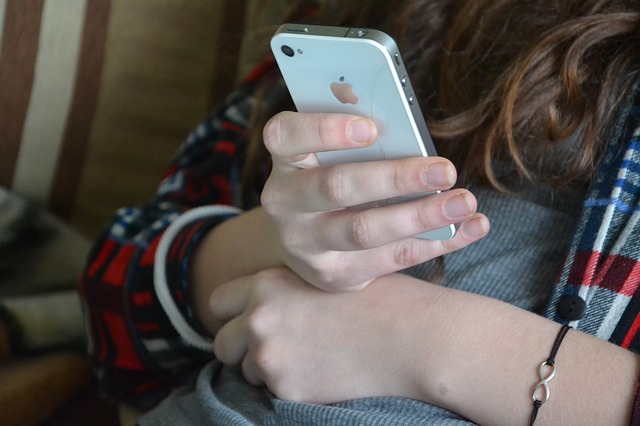As much as we don’t want to admit it, more and more kids are sexting. According to studies conducted by the National Campaign to Prevent Teen Pregnancy, The Pew Internet & American Life Project and the Cox Communications Teen Online & Wireless Safety Survey, 39 percent of all teens have sent sexually suggestive messages via text, email or instant messaging and 48 percent of teens say they have received such messages.
Naturally, kids don’t want their parents to find out about sexting behavior. So they try to stay one step ahead when it comes to keeping select content hidden from their parents. Part of this is developmentally normal. But sometimes it can lead to trouble – especially when social media apps are involved creating harm to your child’s digital reputation.
Even when parents use family safety apps like MamaBear to monitor their kids’ safety, talking about the consequences to sexting is an ongoing, important conversation. Be aware of new social and messaging apps your kids and their peers are using. Also, do your best to responsibly monitor their text messages.
POOF! GOES PARENTAL AWARENESS
Take, for example, the popular app Poof. “Another app to keep an eye on is Poof,” writes one blogger. “It’s an app that hides other apps. All your child has to do is open Poof and select which app they want hidden and mom and dad will never know it’s there.”
This video shows how the app works on Apple devices (note the types of sexually themed apps the commentator decides to hide with Poof!).
Poof also makes a texting app that allows text messages to disappear after they’ve been read. “POOF text messages are never stored on servers, and leave no text messaging footprint behind!” reads the app’s description at the Google Play store.
Taking Responsibility
Do your kids’ phones have Poof? How would you know? So whose responsibility is it to monitor kids when they engage in this behavior? These days, many groups who work with youth are taking action to keep tabs on kids social media behavior, from schools instituting new social media policies to the police, who are known to have their own procedures now for monitoring the social media accounts of local teens. Some might argue that it is the responsibility of the social media companies themselves to keep tabs on what is going on with underage accounts. Others believe it is firmly the responsibility of parents to monitor their kids’ behavior and hold them accountable when they go astray.

